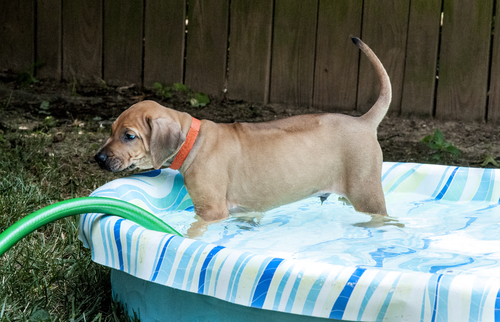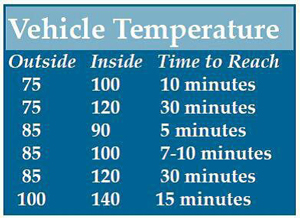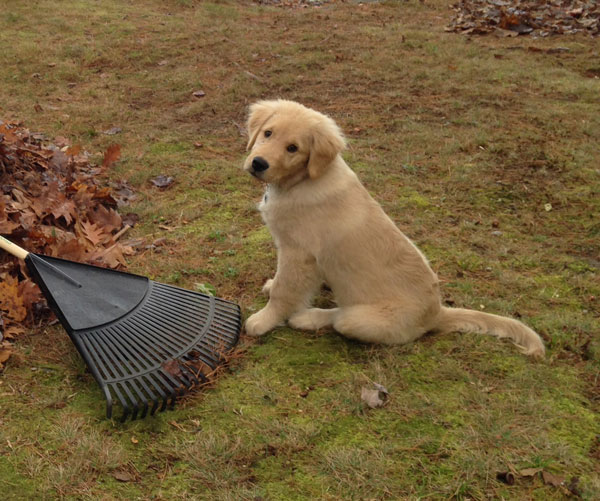Seasonal Health Concerns
Each season in Maine brings its own concerns for pet health. Here are some important ones encountered in spring and summer:

One the most common concerns during the spring and summer months are fleas, ticks, and other biting insects. Both fleas and ticks are determined to make our pet’s lives miserable by causing lots of discomfort and even spreading such serious diseases as lyme and heartworm disease. We will be happy to discuss the preventatives that we currently recommend for these and the other parasites that we come across in Maine.
Extreme temperatures during the summer months can cause heat stroke or heat exhaustion so we need to be very careful on those hot days. Make sure your pet is acclimated and healthy enough for any exercise. For those who walk on paved roads, they become extremely hot and can easily burn pads. Make sure your inside pets are comfortable with fans or A/C and plenty of water. Outdoor pets also need plenty of fresh water, along with shade. A shallow kiddie pool full of cool water can also be a nice place for outdoor pets to cool off. Also, remember that swimming pools are always a potential drowning risk for pets.
We never recommend leaving a pet in a closed car in warm weather, even though you may just be running into the store for a few minutes. Be aware that temperatures in a vehicle can rise extremely quickly even with the windows partially down which can cause serious illness and even death within a short period of time. In this situation, it would be best to leave your pet at home.

Do you know how quickly the interior of your vehicle can become fatally hot?
A good article on keeping your pet cool . . . ( source: berganpet.com )
When summer is at its peak it’s a great time to think about ways to keep pets safe in the heat. When temperatures skyrocket animals are in real danger of becoming overheated. Organ damage, brain damage, and even death can result. Here are some guidelines and suggestions we’ve gathered that will help you prevent the heat from getting to your furry friend.
- Never ever leave your pet in a parked car – Temperatures inside a car can reach 120 degrees in just a few minutes. For more information please see the Humane Society’s flyer on this important topic.
- During extreme heat it’s best to bring pets indoors – Even if they are not house trained, bring them in for at least 30-45 minutes at a time to let their body core cool down…especially in the peak hours of the day.
- Provide plenty of cool water and refresh it often throughout the day – An animal may refuse to drink water that has become too warm. Adding ice cubes will help keep drinking water cool.
- Provide adequate shade – A tree or a tarp will work best for shade and proper air flow. Be sure that shade is available at all times of the day. A dog house is not a good option for shade since it lacks ventilation and will only exacerbate the heat.
- Keep an eye on humidity levels as well as heat – In very high humidity it’s difficult for an animal to cool itself.
- Consider a cooling, soapless bath for your dog – A quick spray with a garden hose or covering him with a very wet towel are fast ways to reduce body temperature. (If an animal is already overheated use only cool water, not cold.) Another option is to leave a shallow kiddie pool out for your dog to cool off in.
- Watch out for overexertion – Dogs still need daily exercise during summer but the cooler morning and evening hours are the best times for them to get it.
- Be aware of the signs of heatstroke – Heavy panting, glazed eyes, a rapid heartbeat, difficulty breathing, excessive thirst, lethargy, fever, dizziness, lack of coordination, profuse salivation, vomiting, a deep red or purple tongue, seizure, and unconsciousness. If you suspect heatstroke take immediate measures to cool your pet. Move her to a cooler area, provide cool drinking water, and use ice packs, water soaked towels, or run cool (not cold) water over her body. Get her to a veterinarian as soon as possible.
Just a bit of extra effort will keep your pet safe and happy this summer, so stay cool!
Here are some important ones encountered in fall and winter

Halloween is a busy night potentially bringing lots of unknown people wearing some pretty scary looking costumes to your door. Keep in mind that for some dogs this can be overwhelming. For these dogs it may be best to keep them confined away from the door to ensure that they are not stressed and there is no risk of a biting accident which would ruin everyone’s night.
While the holidays are an exciting and festive time, they are also associated with hidden dangers for our pets. Many of the foods we consume may be far too rich for their digestive systems causing anything from a mildly upset stomach to a life threatening case of pancreatitis.
Chocolate is also in abundance during the holidays and our pets love it as much as we do. Unfortunately, it is toxic, especially dark or baker’s chocolate. Some holiday plants are also toxic, so use caution if your pets will have access to them. Please call us as soon as you suspect that you pet may have ingested anything that you are not sure is safe for him/her to have.
Christmas tree ornaments and packages can also be dangerous. Tinsel and ribbon may become your pet’s favorite toy but when ingested it becomes a very serious problem often requiring emergency surgery. Keeping these things in mind will help ensure that you and your pets both enjoy a happy and healthy holiday season.
For pets that spend a lot of time outside during the winter it is best to get them used to the colder temperatures gradually throughout the fall. Also, keep in mind that they should have shelter from the elements and water that is protected from freezing. Heated bowls are useful, but be cautious of exposed electrical cords as well as the possibility of the water becoming too hot. Slippery conditions make for lots of knee injuries. Crusty snow and ice can easily cut sensitive pads, so you may want to put on some booties if they go along with you on your snowshoe or x-country ski outings.
As always make sure your pet has been acclimated to the conditions and properly conditioned before you go on your winter adventures!
